Kate Bowler: This is Everything Happens. I’m Kate Bowler. The first few hours after receiving my diagnosis of stage 4 cancer were just total chaos. But in the midst of it, I remembered someone I had recently interviewed for a book. And weirdly, I found myself dialing her number.
Her name is Margaret Feinberg, and she’s a popular Christian speaker at major evangelical conferences and the author of a book called Fight Back with Joy. The book is about her own experience with cancer, and I’d love to talk about that in a minute. But I loved her on sight. In an evangelical women’s world of ladies with long, flowing, glossy hair and promotional photos of laughing families, she has this short, brown pixie cut and an author photo where she looks like she’s sharing a joke with her dog.
Hours after receiving the news, I found myself dialing her number. I think I said something like, “Margaret, it’s me, Kate, the girl from last month that interviewed you, and I just got diagnosed with stage 4 cancer.” And then I think I said something really unladylike.
Margaret is sitting with me here now, and we’ve never really talked about this. Do you remember that moment?
Margaret Feinberg: I do. I do. I think I said some rather unladylike words first because, I don’t know, I just think those are some of the best words that you can hear.
KB: Yeah.
MF: Because in saying unladylike things, it just I was trying to communicate to you, “I’m on team Kate, now and forever, no matter what.” And I … yeah, I still remember.
KB: Oh, you did! I mean that’s exactly what you communicated. You found a way to say something like, “I’m on your side. I’m with you.” And you said something like that we were part of the fellowship of the afflicted. When did you figure out that suffering was a kind of fellowship?
MF: Yeah, I think, you know, in my own story of getting sick, and we talk about this – like we both got sick in our thirties – which is not a normal time.
KB: No.
MF: Right? Like you just broke the life script.
KB: Yes!
MF: Right?
KB: Yeah, yeah, yeah.
MF: And people are like, “I don’t know how to interact with you. I don’t know what to say to you. I don’t know.” And at that point everybody around you is young, too, and so you become the first person in their world to kind of, do this thing, walk this strange, foreign path. And what I figured out pretty early on is, there was a split in my relationships and my friends, and there were those who somehow knew how to say the right thing and do the right thing – often they were older – and then there were others who I would just — I would walk away, I felt like just bleeding.
KB: Yeah.
MF: And I was like, what is the difference? And I realized, “Oh! The people, no matter what age, height, background, any of those things, if they had walked their own affliction, they walked among the fellowship of the afflicted. And when you’re one of those, often there are just characteristics I figured out — we often don’t say a whole lot.
KB: Yes.
MF: We don’t have any pat answers. We don’t speak with certainty. And we learn how to just be in the presence of…. So it’s a gift and something that I appreciate now more than ever.
KB: That’s so funny you said not so many words are needed. Because I was thinking about that lately because there are things people say to me — really specific questions about what kind of cancer I have or my treatment. And I just, I feel my brain dying. It’s like … I think they’re trying to communicate curiosity/concern, but it more feels like it’s, I don’t know, like excavating something really terrible. And now I have to say it out loud to them.
And you just do this thing where you just kind of come alongside. It’s like we all passed out the decoder rings in the cereal box. And we all got one. And, weirdly, I only interviewed you once, but I felt like I got the ring. And then when I needed the ring was someone else … like you were … I think I called my parents, and then they called you.
So those must have been skills you figured out somewhere in the midst of writing that last book right before we spoke. You were, as I recall, in the middle of writing a book about joy. And then you got the worst news of your life. You got diagnosed with breast cancer.
MF: I was two weeks away from turning in an entire manuscript on joy. I mean, I spent a year of my life studying it, I was all pumped, and then I get this brutal diagnosis. And I literally went from searching for joy in the relatively good times of life to searching for joy in the deep, dark, suffering, pain, horror, which-body-part-do-we-want-to-cut-off-of-you-today kind of world.
Before that I never understood the connection between joy and grief and that actually, when you learn to grieve well, you expand your bandwidth for joy. But it was brutal. As I said, it is the most expensive book I’ve ever written.
KB: So walk me through as much as you want to the specifics of — you’re almost done with this book, you get this terrible diagnosis, and then what? Like, you’re launched into the horrible routine of chemotherapy and blah-blah — all the horrible stuff.
MF: Well, okay, so first of all, I grew up in a family where cancer happened to someone else.
KB: Yeah.
MF: Cancer didn’t happen in our family. So that was an illusion that quickly got bashed in. And I wasn’t quite sure what to do with that because even my parents were like, “What? We don’t … we don’t do this.”
KB: No.
MF: Well, now we are. Now we are. And then to get it young, and then to discover when you get it young … and I think … I don’t know how many people know this, but basically a lot of times people don’t understand that when a young person gets cancer, it’s a big deal. Because when you’re older, your immune system wears down, so it doesn’t take a very strong little cancer cell to break in.
But when you’re young, and you’ve got a vibrant immune system, and the cancer cell breaks in, that’s a fierce little army who has now just broken and knocked down the walls and is about to go to task.
And so, you know, I’m sitting there, “What is this?” And they’re like, “Oh, and you got the really bad kind. So you’re getting the chemo and the radiation and multiple surgeries.” I think I had like five surgeries.
I think it’s also, people don’t realize how different cancers are. It’s not one cancer, it’s a billion. So some people kind of get a little mini meal, and then some people get a regular size, and then some people get supersized. And so when somebody says, “I survived, it’s great!” Well wait, which one did you have?
KB: Yeah.
MF: And so this was a whole new world and just really dark decisions of literally, what order do you want things cut out and cut off? And it’s like, wait what? I was just a vibrant, healthy, hiking, accomplished, achievement girl. And everything is gone. And now I’m making the worst decisions ever. And nobody is giving me any skills for this.
KB: And as I recall, you had to — I mean you didn’t have the luxury of setting aside your career during that time. You had to keep being the person who I think of as like the human Tigger. You have more bounce than anyone I have ever met. And I think that’s really what audiences expect from you, too, on stage. You come on stage like a hurricane. It’s just this whirlwind of joy. And it shows up, and you’re joking and laughing and you are firing on all cylinders. And then all of a sudden, you have to also do treatment, also grapple with it, and you’re still traveling at this stage.
MF: Yeah. And I think a couple of things. First of all, I don’t think people get that generally people who are diagnosed with whatever illness, they will do better if they continue to work. And that’s what I was advised. And they said, “Don’t don’t try to carve out …,” but we didn’t have even the privilege or the ability to not work because my husband works with me.
And so, because it’s writing, it’s speaking, he manages bookings, etcetera. Well, if I don’t work, if I don’t continue to produce, we can’t pay for health insurance. And so people would say, “Why are you still speaking? Why are you still …? It’s like, are you offering to pay my medical bills? Are you offering to pick up? Because we don’t we don’t have that luxury.
And so, yeah, I traveled and spoke all through chemo. I did miss one event because I’d flunked out of chemo, and I was waiting on crazy drugs to get. And so that was the one I had to cancel. But I would walk up there skinny, bald — I mean just this frail, sickly girl. And I would save up all my energy. I would lay in bed from the treatments, and I would literally … every iota of energy I would save for that 35 or 40 minutes on stage.
And then I would walk off that stage, my husband would help carry me back to the hotel, help carry me back on the plane. I’m wearing the whole, the gloves and I’m wiping everything down, and the mask because I have no immune system and did that. And there was something brutiful about it — brutal and beautiful — for the first time because I couldn’t even stay to interact with anybody. It was interesting because I was just giving myself. And I got nothing in return. There was no interaction, there was no accolade, sometimes there was no applause. There was nothing.
And so you leave with this huge vacuum of giving out, getting nothing, being sick. And this is going to sound so weird, but it was so freeing, and it was so healing. It was probably some of the purest giving I’ve ever given.
KB: I’m wondering how, when you got off the stage, and then somebody with that wisdom, with the fellowship of the afflicted, gets it, what are some of the beautiful things that people have said to you?
MF: You know, I had somebody give me their coin from AA. And, at first, I’ll be honest, I was like, “Oh my goodness, I just caused you to go back to the very beginning …” It was that bad. “I give up!”
And, a sweet friend explained, “No, that is the highest compliment that you could get from someone, that they could possibly give you.” And so I have it. I actually put it in a little frame in my house, as just that, this is the difference that can be made when you live in that place where the illusions are gone, and you’re just that living offering. So that was beautiful.
KB: So what do you think they meant by it? Like when you look at it, what do you think? What was their best hope for you?
MF: I think they meant, “This has transformed my life in such a profound way that I’m willing to give up this coin that I’ve carried in my pocket — it was well worn for, I don’t even know how many years — to communicate to you that this really mattered at a deep place.” And what an honor and what an opportunity not just to receive but to learn from. And so that was amazing.
I’ve heard from readers, and I think the coolest part is that this book transcends … it’s not just a cancer book. It is, but it’s not. It doesn’t matter what situation you’re in. Maybe you’re caring for your aging parents, maybe your mom has Alzheimer’s, maybe you’re under the stress of raising five kids or a special needs child. I mean, any of that, it’s that sense of, okay, what do we do when we start to discover joy as weaponry to fight back the darkness?
KB: Well, you took on some joyful practices, right? Like didn’t you bring food to the people in the hospital?
MF: I did. I wrote crazy jokes on my boobs that I would surprise the doctors with, and which I cannot share, because they are unladylike, but in that situation it’s perfectly fine.
KB: So they’re just like, unzipping it and…?
MF: Yeah. And they would just burst out laughing or shake their head. And it was classic. I would try to dress in bright colors. I would show up with food and celebratory appetizers at almost every medical appointment for the staff. One day I went and I brought red balloons to everyone in the oncology, where we’re lined up in all of our chairs and just said, “Would you like a red balloon?” And some people would say yes and others would say no. And I totally get it. And I’m going bald, you know, they know I’m not the outsider who is all healthy.
KB: Yeah, yeah, yeah.
MF: I’m with you guys.
KB: Yeah.
MF: And then sitting and talking for them for half an hour, an hour. That was joy.
KB: Yeah. I like that though because, I mean, that space, I used to call it “the gymnasium of human pain” because you’re hooked up to these machines, and you look around and every single person is having a terrible day.
And you’re trying to … and that’s part of what made me feel this wasn’t about cancer, but it was just this universalizing moment where we’re all … we can all see each other in our intense fragility. And there’s a weird — and some people are like muffled tears and whatever, and other people are laughing with their friends. But everybody’s just trying to get through, and everybody’s hoping for that little window where they can give and receive being human in a minute where you just don’t know what’s going to happen. Like that’s part of the deal.
I guess maybe the fellowship of the afflicted, getting rid of the certainty is, you start to learn to talk to each other without pat answers or clichés or easy assurances.
MF: And what’s odd about it is that the people who don’t use those things are the most comforting people. So it’s not what they say, it’s the absence of what they don’t say, that just says, “Okay, we’re here, we’re living on a different island, in a different geographical, spiritual, physical place, and we’re on the same team, we’re all fighting for life, which is our most precious gift. And we’re going to all do it in different ways. And there’s grace for all the emotional spectrum.”
KB: Yeah.
MF: Whatever you’re feeling today is fine, and there is a sense of deep love that doesn’t … it’s not based on anything except love and a camaraderie of understanding.
KB: Yeah, I think that’s right. And then there are all the people that we want to just lovingly punch in the face.
MF: Those are my favorite.
KB: So, what are some of the… I got a lot of “Everything happens for a reason,” and I’m guessing that you got a lot of unhelpful suggestions, advice.
MF: No, no more recipes people! And I’m just going to be honest, whatever berry or fruit, or the worst … the worst was the coffee enemas. Repeatedly, I was sent e-mails, given handwritten notes, told by really well-meaning people that a coffee enema was going to save my life. And, I ain’t going there buddy. Nope, I’m out! Out!
It does get that crazy … And I’m like “No, don’t write me. We’re not friends. Don’t write me. We’re not doing that.” And all of this stuff — there’s a lot of hocus pocus. I would run it all by my queen. I call my oncologist “the queen” because by her I would live or die.
And I just couldn’t. I couldn’t… and they still sent it. And I’m like, “Stop people. Stop trying to fix cancer. If there was a cure, it’s not coming from you. Love you. Not coming from you.”
KB: Best wishes, comma, back up.
MF: Beep, beep, beep.
KB: Well, you made cards, right? Of stuff to say to people.
MF: Oh my goodness, Kate, I got the worst cards in the mail. Okay, so I got a card and it said, “In sympathy,” and I was thinking, “I’m in sympathy with your card.” And by the way, I’m not dead yet!
I got one that said, “I’m sorry for your loss,” and I remember thinking, “Whew, I miss the ta-tas too.” You know? These were horrible, so I got really mad for a while. One of my friends told me to save all the cards and put them in a basket, and I did, and it was a sign and an encouragement that people loved and cared.
But at a certain point, I was like, “Where are people finding all of these horrible cards?” And then I went to a large store, which probably should remain nameless, but let’s just say the symbol is that’s where you shoot an arrow in the bull’s eye, you know that one?
KB: Sure, yeah.
MF: I looked in the aisles, and I realized, this is why there’s such bad cards. There’s not good ones, and so I finally decided, I’m going to make some cards about what to send to people. And so I know one of them, I took the idea of a seeing eyechart, and instead of the letters, I put XOXOXO.
KB: Oh cute.
MF: Really sweet. And then inside, it just says, “I know sometimes in life it’s hard to see clearly. Things can get really blurry. But know that when I look at you, I see someone who is loved and affirmed and beautiful.”
And those kinds of sentiments speak life into someone. No more “In Sympathy.” Uh-uh. We ain’t doing that. We are going to speak life and hope and beauty and truth. I remind people … I think the most powerful words you can say to somebody is “You are loved, and you are not alone.”
KB: Yeah.
MF: And I am with you, and I am for you.
KB: Yeah.
MF: And that simple statement, it translates in phone calls. It translates in emails. It translates in texts. But giving people a vocabulary for what is really a hard time sometimes …
KB: Yeah, yeah. I was trying to explain that to someone — you’ve got to thread the needle between not eulogizing people. Because this one person once wrote me a very long email, and I realized that he was entirely describing me in the past tense. He was like, “You were so funny,” and I was like, “Oh God, this is not going well.”
You do want someone to feel like they still see that you’re not eclipsed by whatever you’re going through.
MF: Yeah. Can I share a story of someone who was — I was thinking back to your question about somebody who did something that really breathed life and was really just delightful. It’s one of the kindest things that anybody’s ever done for me in my entire life. My tastebuds changed so much under cancer that I couldn’t decide day to day what I wanted to eat. One day, something would taste good, and the next, I’d spit it out. Even things like chicken noodle soup, basic things. Sometimes I would eat a blueberry, it would taste like a mushroom. Everything got really weird, and so people wanted to bring food and casseroles or whatever. It wasn’t a gift because we would just throw most of it away.
So we said, instead, “Would you buy me gift cards?” The local Whole Foods or grocery store where I can walk into the deli, taste samples, and then be able to bring food home that I would want to eat. And Peggy and Louis sent me the first month, they sent me a hundred dollar gift card to Whole Foods, and I thought “That is so sweet.” And at that point there’s a lot of people. When the initial 911 goes out about a tragedy, people circle around. Well, month two, they sent a second card, and month three, they sent a third. And by this time people are starting to thin out. They’ve rushed in, they’ve given their nod, and now they’re just — they’re gone.
KB: Yeah.
MF: Month five, month six… Do you know they continued to send me those gift cards for 26 months?
KB: What?
MF: During that time sometimes I would get their letter or their card in the mail, and I would just start weeping because I felt so deeply loved, and they sent those until I wrote them and said, “Okay we’re better, we’re back on our feet now. You don’t have to do that.”
But that was born out of their own pain of their son dying from a vicious fight with cancer. And that kind of, I am with you now and for the long haul, is … it is one of those powerful things that we can do for people that we don’t just send the one or the two-time card, but we keep reaching out, we keep texting, we keep emailing. It means so much.
KB: Yeah, yeah. It really does, it really does thin out. It really does sort of … taper off.
MF: But we don’t thin out.
KB: No. Since I think we both share the same wish that the world was a little bit safer for people like us, I was wondering if you had any suggestions for what people can do to make the world a little gentler for people who are suffering.
MF: I love this. I love this about Kate. So Kate’s discerning, biggest thing about people is she asks this core question, “Are they kind?” And so you can be whatever — political, emotive, opinionated, you can be driven, you can be all things. But at the end of the day, if you’re kind, that’s really what everything boils down to. And I love that. So I think that kindness that you’re calling forward is so important.
I think for those who — maybe you know somebody else who’s suffering, going through a hard time, crisis, they come in every shape and form and flavor imaginable.
KB: Yeah.
MF: And I think number one, you know, to break the silence, to give the gift of your presence. You know, I think committing for the long term, I look to the story of the Good Samaritan, teaches so many rich lessons. But if you just look at the practicality of it, he picks him up, scoops him, gives him transportation, helps him find good comfy bedding, helps commit and pay for the medical needs, and checks back in.
Okay, so basically, just read the story literally and do those things. I know. It’s that simple. But if we do those things, we’re good. So look at transportation, look at good bedding. I mean, seriously, you have people right now, they need a better pillow. They need better sheets because they’re spending more time in their bed than they’ve ever spent. Maybe you can contribute something to medical bills. Those little things, nobody offers to say, “Hey, you know, here’s 50 or 25 or 100 bucks for your medical bills, just put it toward that.”
And I also think that to recognize and I think to be kinder is, I think a first question when somebody gets sick, is “Well, do you have health insurance?” And when the answer is “Yes,” we think everything’s okay.
KB: No way. Yeah.
MF: The hit is not just in all the medical bills. Remembering that your maximum out-of-pocket is every calendar year. But it’s also the cost of the loss of work, the loss of income, the increased childcare, the different foods, all the prescriptions, the medication. Those bills are crazy, and people don’t recognize or understand that you can step in and just say hey. And the 50 or 100 dollars to the bazillion dollar bills isn’t going to be that much, but it just is one more way in kindness to say, “I am with you. I am fighting with you.”
KB: Yeah, yeah, yeah.
MF: What would you add to that?
KB: No, I like this emphasis on practicalities because some of the biggest things people did for me were in the … helping sort of stand beside me to fight institutional wars that I was fighting with my health insurance. So, I mean, that’s not something everyone can do for people, but just having an awareness that at any given moment, half my brain is being taken up by wondering if there’s going to be enough to go around. And that the medical world is just going to eclipse so much of what I imagined for my future, not just emotionally but practically. So any of those little infusions of grace and joy and energy but also just a gift card for something.
MF: Do you know what one of the kindest things people did for me? This is so funny, but especially in our situation where basically everything rides on … myself as the breadwinner, is they gave me work. They gave me work. They didn’t cancel on me when they found out I had cancer. They still allowed me to work knowing that I was high risk as a sick speaker coming. A lot could go wrong.
And then what is interesting is after I was through treatment, I really struggled with a lack of work. That’s also something to keep in mind, that for some people, you may say, “Okay, they’re through cancer, they’re good,” but nobody may be giving them work because they’ve been sick. And so there was a huge year there that was actually more painful financially than the year I was sick. But give people work if you have that ability.
KB: Well, you look great now, and I know you’re back in the swing and everything, but I just love that even though you’re doing so well, you always seem to make space for the fellowship of the afflicted. So thanks so much for that gift. Thanks for talking with me today.
MF: Love you Kate.
KB: Aw.
When I was talking to Margaret, it made me realize how seldom I use cancer words and how reluctant I was to even just ask them in the form of a question, like, “What kind of cancer did you have again?” or “What was your diagnosis?” or “I heard you got chemotherapy and radiation.” Like none of these are words that I usually say out loud. And I notice that other people in similar situations, that they don’t really use them either.
I think part of it is that when I say it … like even just saying it, like, “chemotherapy.” I can feel it in my body, I remember what it was like when they had to attach it like fluids. And I had to wear it around my waist and it snaked up into this thing and went into my chest. And I can feel these words in my body.
And so when people say, “What’s your diagnosis?” or something, they’re also imagining that I’m like a terrible fortuneteller who can look into the future and tell them what’s going to happen. And, one, I always want to say like, “Buddy, if you think you know what’s going to happen in your life, good luck.” But to me, it just brings back all of those awful conversations. This new language I had to learn when I got this diagnosis to start talking about my life like a prognosis. All of a sudden I could anticipate what was going to happen. And I immediately learned the dance of avoiding all of those questions and all those words.
So I say things like, “Oh I’ve been in treatment,” or “Now I’m managing illness.” But I will do everything I can do to not be really specific. So for instance, my book has to be labeled as a genre, and I found it so terrible that it was going to be a cancer genre — and not just a cancer genre. I looked it up, and it’s listed as the number one release in colorectal cancer. I don’t think I use the word “colon cancer” pretty much anywhere in the book because, one, I don’t think I want people to imagine my colon and, two, I don’t think I imagined I wanted the word “rectal” anywhere near what people pictured when they pictured me in my life. So everyone’s been taking screenshots and sending it to me: “Number one release in colorectal cancer!” And I find the whole thing truly horrifying.
Every single day we make dozens of decisions, but we don’t know until much later which ones will change the course of our lives. Wes Moore is an author and activist and knows all about what it means to come to the fork in the road. Listen to our amazing conversation next time.
Everything Happens is produced by Duke University in association with North Carolina Public Radio/WUNC. Support comes from Faith and Leadership, an online learning resource.
This podcast is produced by Beverly Abel and Alison Jones. Sound engineering is by Dennis Foley with assistance from Ivan Panarusky. Special thanks to Amanda Hite and the Be the Change Revolution team and Random House.
And we’d love to hear from you! If you like what you’re hearing, please post a review on iTunes. And while you’re there, be sure to hit that subscribe button. You can find me on Facebook, always, Instagram, often, and Twitter, every day, @katecbowler. Let’s chat. Until next time. This is Everything Happens. I’m Kate Bowler.

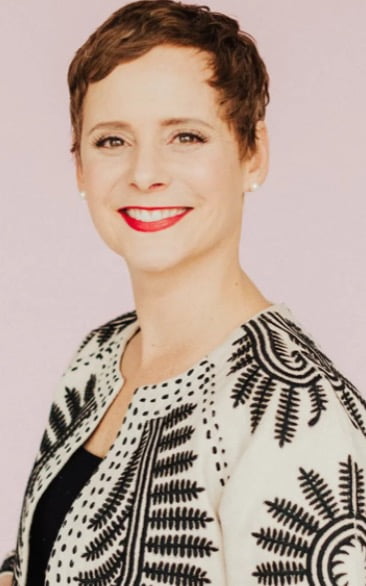
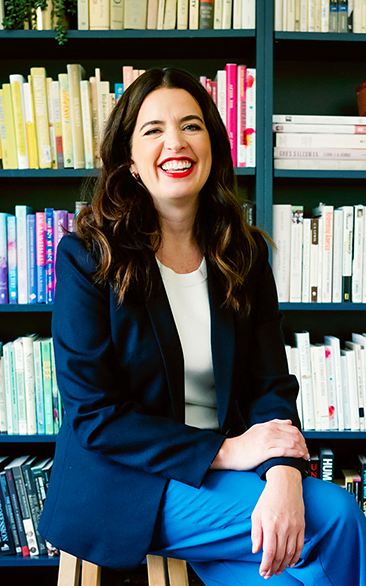









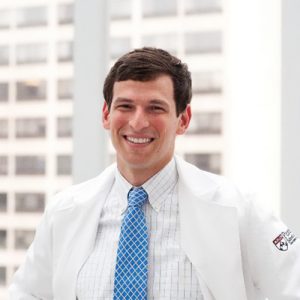
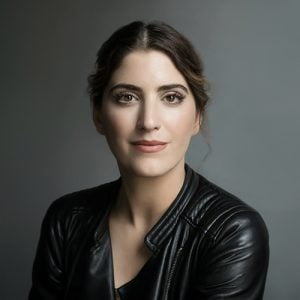
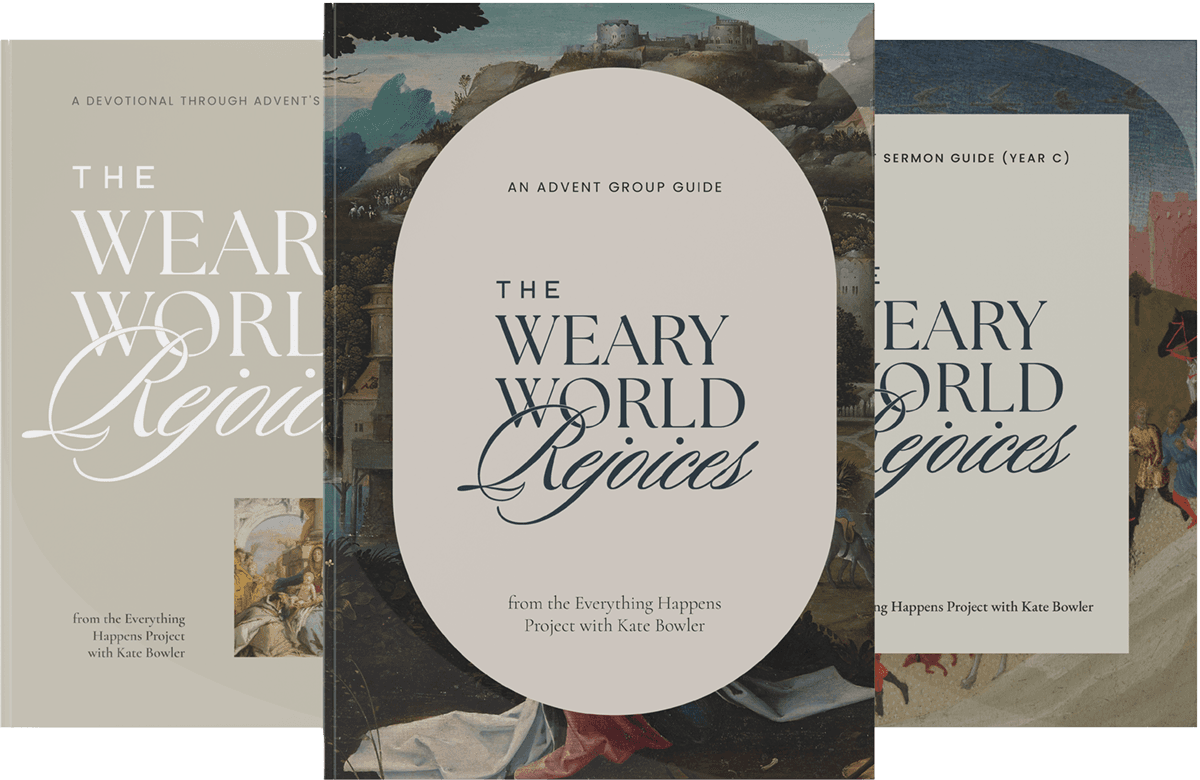
Leave a Reply